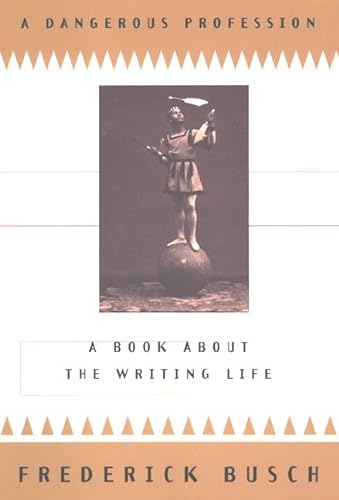A distinguished American novelist and critic explores the fundamental truths revealed in the fictional works of some of the world's finest literary figures, including Melville, Dickens, and Hemingway, in a collection of incisive essays on the significance of literature. 17,500 first printing.
Part memoir, part literary criticism, novelist Frederick Busch's
A Dangerous Profession could serve as a warning to post on the door of every creative-writing program in the nation. Take, for instance, Busch on the glamour of the writer's life: "Yes, the thrill of rising at 5:30 a.m. and writing in the dark cold, or typing late at night after jobs that eat our hearts and livers..." Or Busch on the literary marketplace: "Something that is part of the gift is also a compulsion: that we seek the darkness, not the light; that we serve up grindings of glass in blood sauce rather than the Fifth Avenue soufflé most readers want." Or, finally, Busch on the attitude of the world at large to writers: "...we are the enemy."
What drives people to an activity so manifestly difficult, unprofitable, and against common sense? The author of 21 books, Busch illustrates the ancient need to tell stories by reflecting on writers as varied as Melville, Dickens, Kafka, and Graham Greene. Busch is a perceptive reader as well as an accomplished writer, and it's a pleasure to read criticism so clearly passionate about books as art and not just ideas. The most moving part of A Dangerous Profession, however, is that in which Busch meditates on his own sources of inspiration, including the complex and elusive figure of his own father. There is a little bit of oh-pity-the-suffering writer here, but not a lot--and, in fact, much more of oh-pity-the-suffering-writer's-wife (husbands not included, since Busch doesn't have one). Eclectic, witty, and never less than stunningly written, A Dangerous Profession is a memorable tribute to the rewards as well as the rigors of the writing life. --Mary Park
![]()
